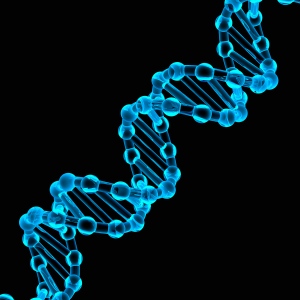You’d have to be living in a cave for the last sixty years to have never heard of DNA and the advances made in science. The discovery of DNA has led to criminals being arrested, diseases being cured and families being reunited. While DNA isn’t always a positive topic, the average American may be shocked to discover several interesting facts about DNA. You can buy a cheap DNA test online to learn more about yourself and your family ancestry, and learn many fun facts about yourself through science – see more at http://www.gtldna.com/GeneralInfo.htm.
Saving Species in the Future
At the end of 2013, an iron sculpture was lowered into the Marianas Trench. Within the sculpture, known as the Hornsleth Deep Storage Project, vials contained human hair samples, blood and animal DNA. This was done in order to bring endangered species and people back to life if they are to become extinct in the future.
No Hope for Dinosaurs
According to scientists, DNA has a half life of 521 years. This means that the oldest samples of DNA that could be cloned can’t be more than two million years old. Since the youngest dinosaurs were believed to be on the earth more than 60 million years ago, dinosaur fans will be disappointed to learn that there is no hope of ever cloning a dinosaur from DNA.
Humans are Very Similar
Almost all humans are similar in DNA. Humans are 99.9% similar according to their DNA. The remaining .01% provides enough information to determine which strands belong to which person. This means that humans are truly more alike than they may think.
Welcome to the Bugs
Ever heard of vaccines? Vaccines work when a virus or bacteria is inserted into the bloodstream in a controlled dose in order to provide the body with the ability to fight off certain diseases and illnesses. Because of this, human DNA is made up of close to 8% human viruses that affected people in the past.
Be Wary of Transplant DNA – It Could Land You in Jail
Humans that have a bone marrow transplant from another individual may end up with the DNA of the donor. This DNA is found in the blood while your original DNA will be found in your hair and your saliva. In several cases, people have been wrongfully accused based on evidence provided by DNA after a bone marrow transplant.
Be Fruity
Research suggests that the DNA of humans is very similar to that of bananas – 50% in fact. If you feel like being fruity some days, remember that you may come by the tendency naturally.
Fooling the System
Several years ago, law enforcement officials were fooled by a rapist that was asked to provide a DNA sample. The rapist had a tube of another individual’s blood surgically implanted in his arm. The blood for his DNA test was then drawn from the tube when the lab technician was tricked into drawing from the fake tube.
Similarly, two German twins walked free from charges of jewel theft because their DNA was identical. Police were able to match the DNA to the two men, but could never prove which one was responsible. Because both men denied culpability for the theft, they both ended up being exonerated despite strong DNA evidence against one of them.
Quite the Trip
If all the DNA in your body was uncoiled and stretch, you would have enough DNA to cover 10 billion miles. This is the same distance from the earth to Pluto and back. That’s quite the trip.
Storage Base
Only 2 g of DNA could store all digital information in the world. That saves quite a bit of CDs, DVDs, and Internet storage space if DNA could be utilized for saving information.
DNA Repairs Itself
Your DNA is damaged on a daily basis, but your body has the ability to replace your systems and repair it regularly. It has been suggested that DNA is damaged up to 1 million times per day in each cell of your body. Your body is constantly active in repairing and replacing DNA. When this system malfunctions it can be tragic, ending in cell death or cancer.
The Basis for Life
Discovered in 1953, DNA technology has advanced greatly since then. The thousands of interesting facts about DNA point to the obvious intriguing and intricate nature of the body. DNA is constantly being studied and science is advanced on a daily basis, improving healthcare and the safety of all Americans.
Image via Nature.com
